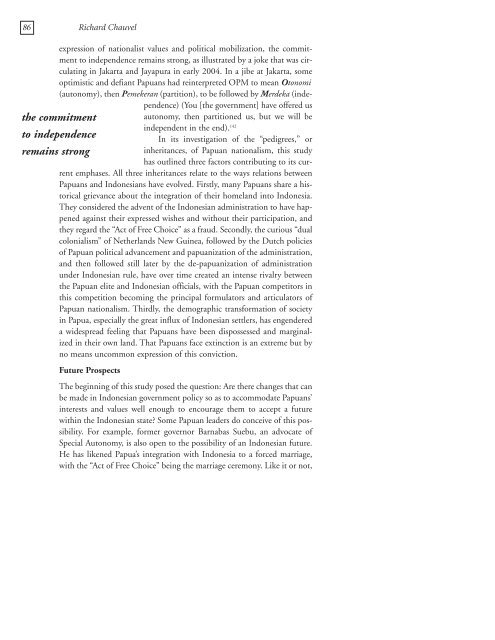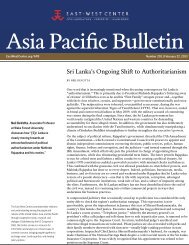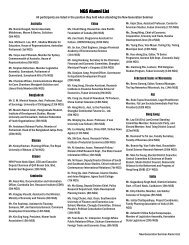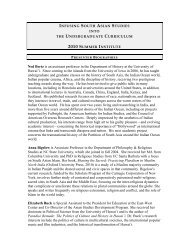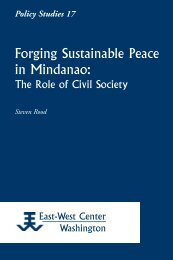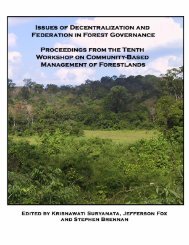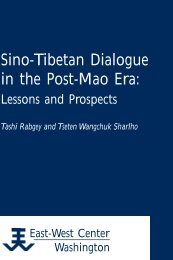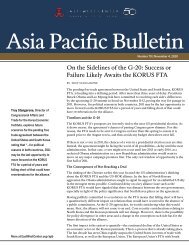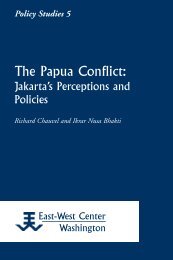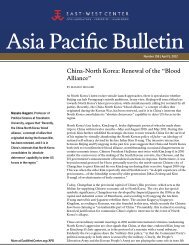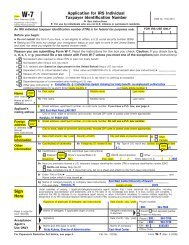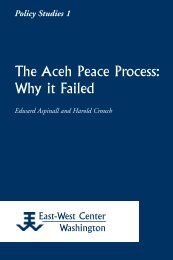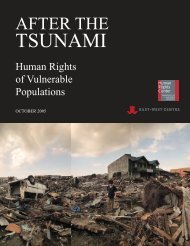Constructing Papuan Nationalism: History, Ethnicity ... - ScholarSpace
Constructing Papuan Nationalism: History, Ethnicity ... - ScholarSpace
Constructing Papuan Nationalism: History, Ethnicity ... - ScholarSpace
- No tags were found...
Create successful ePaper yourself
Turn your PDF publications into a flip-book with our unique Google optimized e-Paper software.
86 Richard Chauvelexpression of nationalist values and political mobilization, the commitmentto independence remains strong, as illustrated by a joke that was circulatingin Jakarta and Jayapura in early 2004. In a jibe at Jakarta, someoptimistic and defiant <strong>Papuan</strong>s had reinterpreted OPM to mean Otonomi(autonomy), then Pemekeran (partition), to be followed by Merdeka (independence)(You [the government] have offered usautonomy, then partitioned us, but we will beindependent in the end). 142In its investigation of the “pedigrees,” orinheritances, of <strong>Papuan</strong> nationalism, this studyhas outlined three factors contributing to its currentemphases. All three inheritances relate to the ways relations between<strong>Papuan</strong>s and Indonesians have evolved. Firstly, many <strong>Papuan</strong>s share a historicalgrievance about the integration of their homeland into Indonesia.They considered the advent of the Indonesian administration to have happenedagainst their expressed wishes and without their participation, andthey regard the “Act of Free Choice” as a fraud. Secondly, the curious “dualcolonialism” of Netherlands New Guinea, followed by the Dutch policiesof <strong>Papuan</strong> political advancement and papuanization of the administration,and then followed still later by the de-papuanization of administrationunder Indonesian rule, have over time created an intense rivalry betweenthe <strong>Papuan</strong> elite and Indonesian officials, with the <strong>Papuan</strong> competitors inthis competition becoming the principal formulators and articulators of<strong>Papuan</strong> nationalism. Thirdly, the demographic transformation of societyin Papua, especially the great influx of Indonesian settlers, has engendereda widespread feeling that <strong>Papuan</strong>s have been dispossessed and marginalizedin their own land. That <strong>Papuan</strong>s face extinction is an extreme but byno means uncommon expression of this conviction.the commitmentto independenceremains strongFuture ProspectsThe beginning of this study posed the question: Are there changes that canbe made in Indonesian government policy so as to accommodate <strong>Papuan</strong>s’interests and values well enough to encourage them to accept a futurewithin the Indonesian state? Some <strong>Papuan</strong> leaders do conceive of this possibility.For example, former governor Barnabas Suebu, an advocate ofSpecial Autonomy, is also open to the possibility of an Indonesian future.He has likened Papua’s integration with Indonesia to a forced marriage,with the “Act of Free Choice” being the marriage ceremony. Like it or not,


